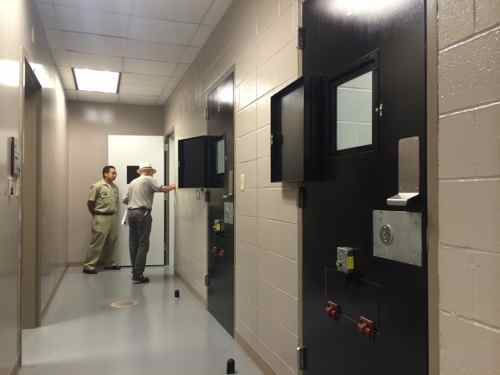Opinion: We Need To Rethink Our Entire Criminal Justice System

Decades ago both major political parties both wanted to appear “tough on crime”. which led to knew legislation, sentencing guidelines, etc. The results haven’t been what was expected. Instead of a deterrent to crime, or at least rehabilitation for first offenders, we’ve created a system of mass incarceration.
Over the past four decades, our country’s incarceration rate – the number of prisoners per capita – has more than quadrupled and is now unprecedented in world history. Today, roughly 2.2 million people are behind bars in the United States, an increase of 1.9 million since 1972. We have the world’s largest prison population – with one-quarter of its prisoners but just 5 percent of the total population. And, on any given day, some 7 million people – about one in every 31 people – are under the supervision of the corrections system, either locked up or probation or parole. This vast expansion of the corrections system – which has been called “the New Jim Crow” – is the direct result of a failed, decades-long drug war and a “law and order” movement that began amid the urban unrest of the late 1960s, just after the civil rights era. It’s a system marred by vast racial disparities – one that stigmatizes and targets young black men for arrest at a young age, unfairly punishes communities of color, burdens taxpayers and exacts a tremendous social cost. Today, African-American men who failed to finish high school are more likely to be behind bars than employed. (Southern Poverty Law Center)
This highly profitable system begins early, with the School-to-Prison Pipeline:
A disturbing national trend wherein children are funneled out of public schools and into the juvenile and criminal justice systems. Many of these children have learning disabilities or histories of poverty, abuse, or neglect, and would benefit from additional educational and counseling services. Instead, they are isolated, punished, and pushed out. “Zero-tolerance” policies criminalize minor infractions of school rules, while cops in schools lead to students being criminalized for behavior that should be handled inside the school. Students of color are especially vulnerable to push-out trends and the discriminatory application of discipline. (ACLU)
So I applaud St. Louis Circuit Attorney Kim Gardener for trying to change the current system — changes that will improve lives and potentially reduce crime.
“We’re looking to collaborate more with law enforcement because as law enforcement we have to say things aren’t working and we have to do things differently. So we have to change the narrative of more arrests means safer cities because St. Louis has done a great job arresting and prosecuting and we still are a less safe city,” said Gardner.
Gardner says alternatives for jail would include diversion programs. She said also wants to reform the bail system.
Gardner added she wants her office to reach out to groups that work with offenders to address the root of violence. (KMOV)
Earlier this year 60 Minutes took a look at German prisons, a stark contrast to our prisons:
In Germany, prison isn’t meant to punish, it’s designed to mirror normal life as much as possible. Among the privileges enjoyed by German prisoners: immaculate facilities, organized sports, video games and keys to their own cells. Inmates can wear street clothes and can freely decorate their own cells — keeping all sorts of household objects that American prison guards might consider dangerous. Prisoners who demonstrate good behavior can even leave prison for work or weekend getaways. Average Americans may balk at this level of freedom for convicted criminals, but prisons in Germany cost less and produce far fewer repeat offenders than U.S. prisons. (CBS News/60 Minutes)
Less cost, fewer repeat offenders. We need to admit our ‘tough on crime’ policies are as big a failure as our ‘war on drugs’ policies.
Readers were split in the recent non-scientific Sunday Poll:
Q: Agree or disagree: Do the crime, do ALL the time (including non-violent offenders).
- Strongly agree 4 [22.22%]
- Agree 3 [16.67%]
- Somewhat agree 0 [0%]
- Neither agree or disagree 0 [0%]
- Somewhat disagree 0 [0%]
- Disagree 5 [27.78%]
- Strongly disagree 4 [22.22%]
- Unsure/No Answer 2 [11.11%]
If we truly want to do reduce crime we must rethink our approach to criminal justice, because what we’ve been doing isn’t working.
— Steve Patterson